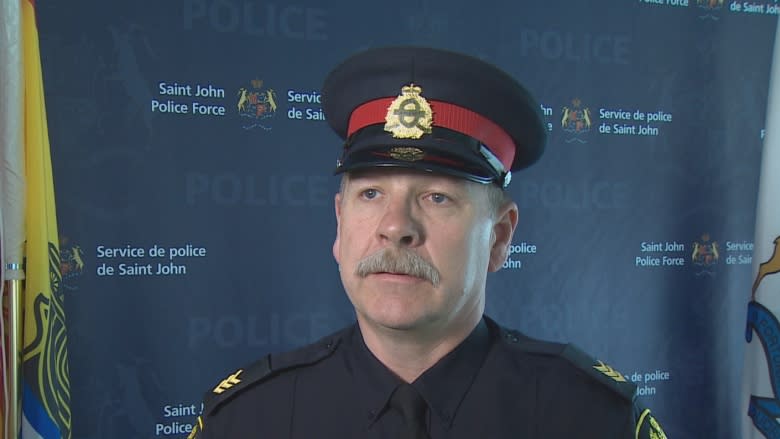Police association, medical society call for strict guidelines for pot legalization
The New Brunswick Police Association and the New Brunswick Medical Society are calling on the provincial government to consult with experts and take steps to ensure the legalization of marijuana doesn't negatively affect the health and safety of its residents.
Both associations were reacting to the federal government's tabling of bills Thursday to legalize marijuana and clamp down on impaired driving.
Police association president Sgt. Dean Secord, of the Saint John Police Force, said more background work should have been done and law enforcement more involved before moving ahead with legislation to legalize pot.
"It seems like the government is starting at the roof and coming down to the ground level," said Secord.
Psychiatrist Dr. Linda Hoyt said the medical society wants the province to set an age limit more appropriate than the 18 years suggested by the federal government in its legislation.
Hoyt said there is evidence that using marijuana on a regular basis is dangerous and can have long term effects on a young person's brain.
She said it's a mistake for the federal government to suggest the age limit be set at 18.
"We'd like to see it higher than that," she said, adding that is the consensus of doctors across Canada.
Hoyt said they hope the province will work with them and others to set strict regulations on marketing, where pot can be sold, and to decrease the risk of exposure to youth.
Watching closely
Secord said police officers are watching closely and wondering what they can do.
"Where do we go, because the federal government is saying well we're going to deal with this, we're going to pass it through legislation and so forth and we're letting the provinces deal with it from there," he said.
Secord said the association has issues with the maximum of 30 grams allowed for personal use.
He added the association is also concerned with the number of plants an individual is allowed to grow. He pointed out that plants have been seized on raids that have grown to between six and seven feet tall.
Secord says legalizing marijuana is like giving a blank cheque to members of organized crime, who can now grow and sell it and not worry about facing jail time.
"It's very concerning what's going on and I don't believe they've had enough input from law enforcement to break this down to see what the consequences are really going to be down the road," he said.
Public safety
Secord said he feels the public will blame law enforcement when things like drug impairment aren't properly enforced because not enough police officers are trained.
"Is the provincial and federal government going to put money forth to help train officers to fight drug impaired driving?" he said. "And if they're not going to put the money forth, then why are they putting the bill forward of legalizing cannabis?"
Hoyt said there is a concern there will be an increase in people seeking help for mental health issues after marijuana is legalized, noting marijuana use can lead to psychiatric conditions like psychosis and bipolar disorder.
"We've [seen] a bulge in patients with the use of medical marijuana that's been increasing in frequency in our area," she said.
She added the medical society hopes the provincial government will work closely with experts that have knowledge about how marijuana can affect the safety and health of the population.
"Work with us so we can set up parameters so this decision by the federal government will not negatively affect public health," she said.




